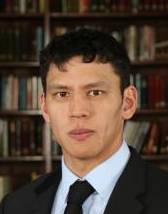Operation Z: The Death Throes of an Imperial Delusion
Russia's military setbacks in Ukraine pose a new set of security challenges in Europe and beyond.
When Russian forces began to roll towards the Ukrainian border on the evening of Defender of the Fatherland Day, 23 February, Moscow was anticipating the capture of Kyiv within three days. Many outside observers – including the authors of this report – feared the destruction of the conventional Ukrainian military, even if they expected the fighting to last longer than Moscow had hoped. Moscow’s plan was for repressive measures to have stabilised control of Ukraine by Victory Day on 9 May. Instead, the Russian military was repulsed, suffering heavy losses, and is now embarking upon a limited offensive to try to secure Donetsk and Luhansk.
The war in Ukraine has generated a considerable volume of highly detailed analysis relating to the military progress of the campaign, the struggle for information, the cascading economic effects of high energy prices and supply chain disruption, and the geopolitical fallout as countries are increasingly called upon to pick a side. However, despite an emphasis in Western security concepts on the need for a whole-of-government approach, much of the analysis on the war in Ukraine has focused on narrow silos. This Special Report seeks to examine how the interconnected challenges confronting Moscow are reshaping Russian policy, and the risks Moscow’s potential courses of action pose as the war enters a new phase. The foremost conclusion is that Russia is now preparing, diplomatically, militarily and economically, for a protracted conflict.
This report is based on a wide range of sources. On the military front the report draws upon sustained though periodic engagements with Ukrainian combatants in the conflict and independent reporters observing the fighting on the ground, continual analysis of open source information from the war, and intermittent interviews with senior Ukrainian officials and officers during fieldwork in March and April. The diplomatic and economic analysis draws upon interviews with Ukrainian and Western intelligence officials, energy experts including former employees in Russia’s strategic industries, and diplomats and national security representatives from several NATO and non-NATO member states that have maintained links with Russia. The report also draws upon inspections by the authors of Russian military equipment recovered from the battlefield during fieldwork in April, and an extensive set of documents from inside the Russian government. Owing to the sensitivity of the methods by which these documents were obtained their sourcing is largely withheld, though the authors took steps to establish their veracity.
Dr Jack Watling
Senior Research Fellow, Land Warfare
Military Sciences
Nick Reynolds
Research Fellow, Land Warfare
Military Sciences



